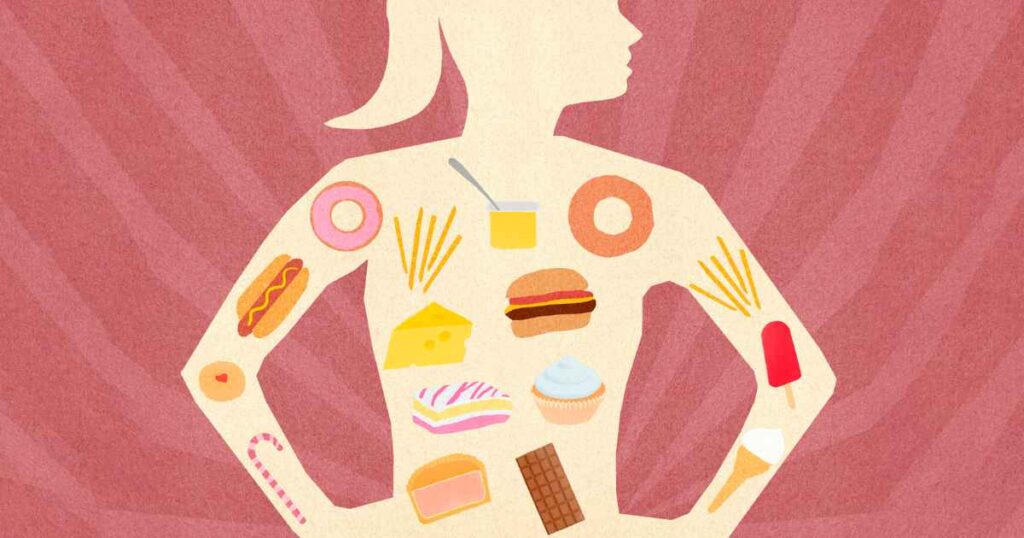Junk food is found just about everywhere.
It’s sold at supermarkets, convenience stores, workplaces, schools, and in vending machines.
The availability and convenience of junk food make it difficult to limit or avoid.
You may have wondered whether you should steer clear of it at all costs or follow the mantra to enjoy everything in moderation.
This article tells you everything you need to know about junk food and whether complete abstinence is better than the occasional treat.
Junk Food in Disguise
Many foods that are thought of as healthy are really junk food in disguise.
For example, fruit drinks provide vitamins and minerals but may also have the same amount of sugar and calories as soda.
Manufacturers market granola and breakfast bars as being free of high-fructose corn syrup and packed with heart-healthy whole grains.
Yet, these bars may contain as much added sugar, if not more, than a candy bar.
Similarly, manufacturers market gluten-free products—such as cookies, cake mix, and chips—as healthier options than their gluten-containing counterparts, even though both foods may have similar nutrition profiles.
Even naturally gluten-free products like certain juices, chocolate bars, and hot dogs are labeled “gluten-free” to make them appear healthier.
How to Eat Less Junk Food
Here are several ways you can reduce your junk food consumption.
First, try leaving it on the store shelf. Not having it in your house takes away the temptation altogether.
Second, avoid eating chips or other snacks directly out of the bag. Instead, portion a small amount into a bowl and enjoy.
Also, replace your junk food with healthier choices. Fill up on:
- Fruits: apples, bananas, oranges, and berries
- Vegetables: leafy greens, peppers, broccoli, and cauliflower
- Whole grains and starches: oats, brown rice, quinoa, and sweet potatoes
- Seeds and nuts: almonds, walnuts, and sunflower seeds
- Legumes: beans, peas, and lentils
- Healthy protein sources: fish, shellfish, tofu, steak, and poultry
- Dairy: Greek yogurt, cheese, and fermented dairy products like kefir
- Healthy fats: olive oil, nut butter, avocados, and coconut
- Healthy beverages: water, sparkling water, green tea, and herbal teas
- Remember that it’s best to implement small changes over time to ensure lasting results.
The Bottom Line
Junk foods are high in calories, sugar, and fat but lack important nutrients like fiber, vitamins, and minerals.
The combination of fat and sugar makes junk food addicting and easy to overconsume.
Still, completely avoiding them may not be beneficial. Enjoying your favorite treat on occasion is a more healthful and sustainable approach for most people.
If you’re worried about trigger foods, talk to a healthcare professional.
